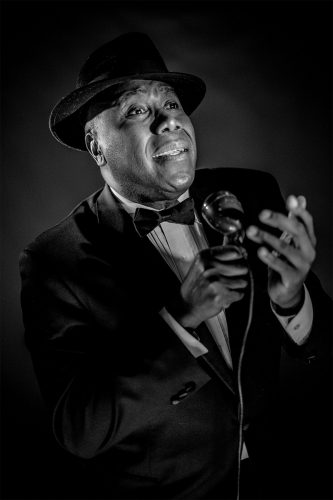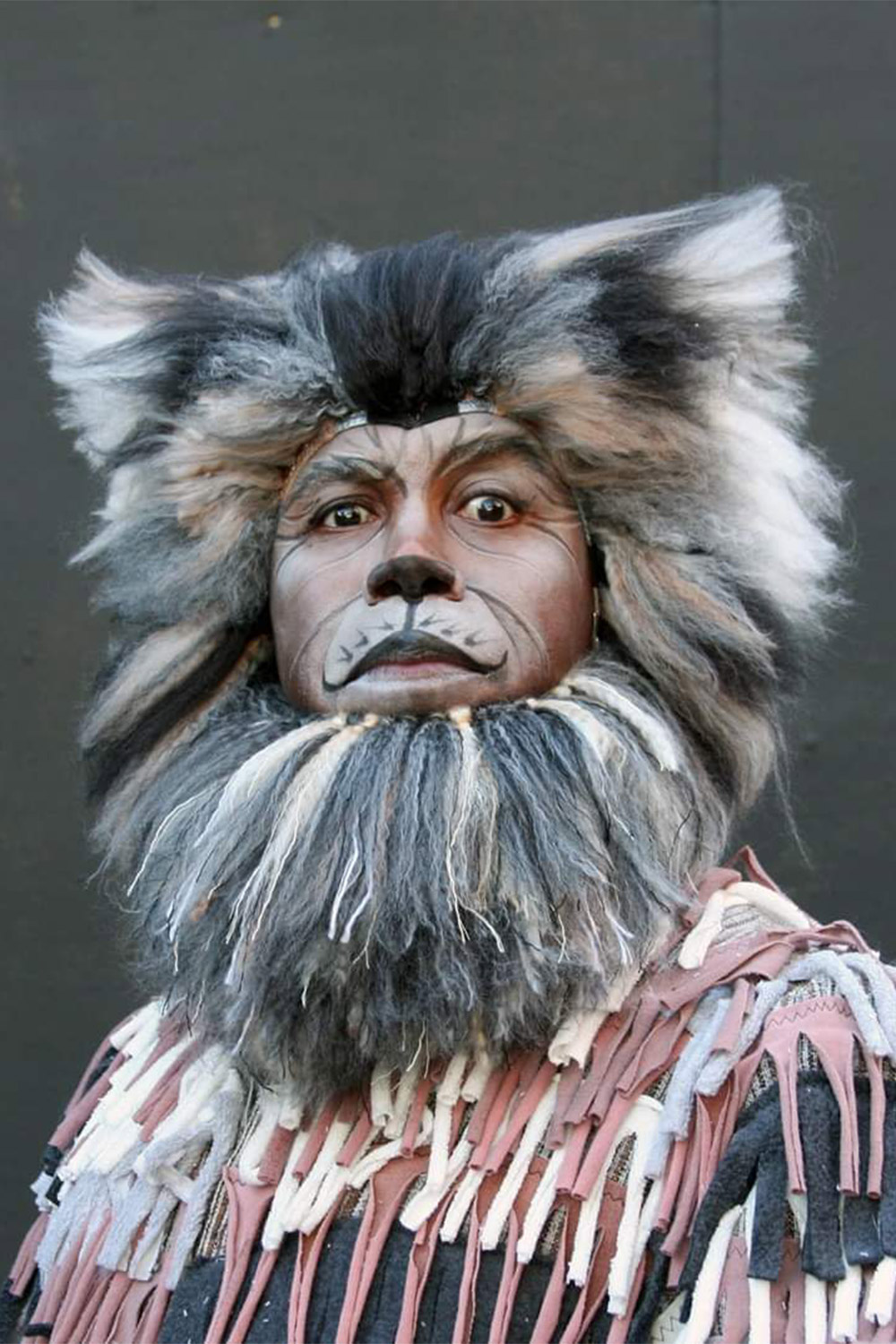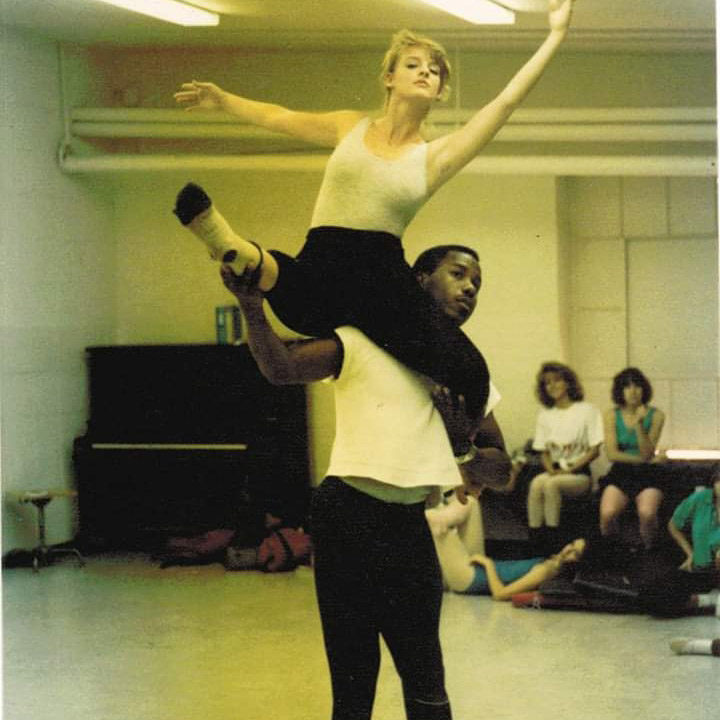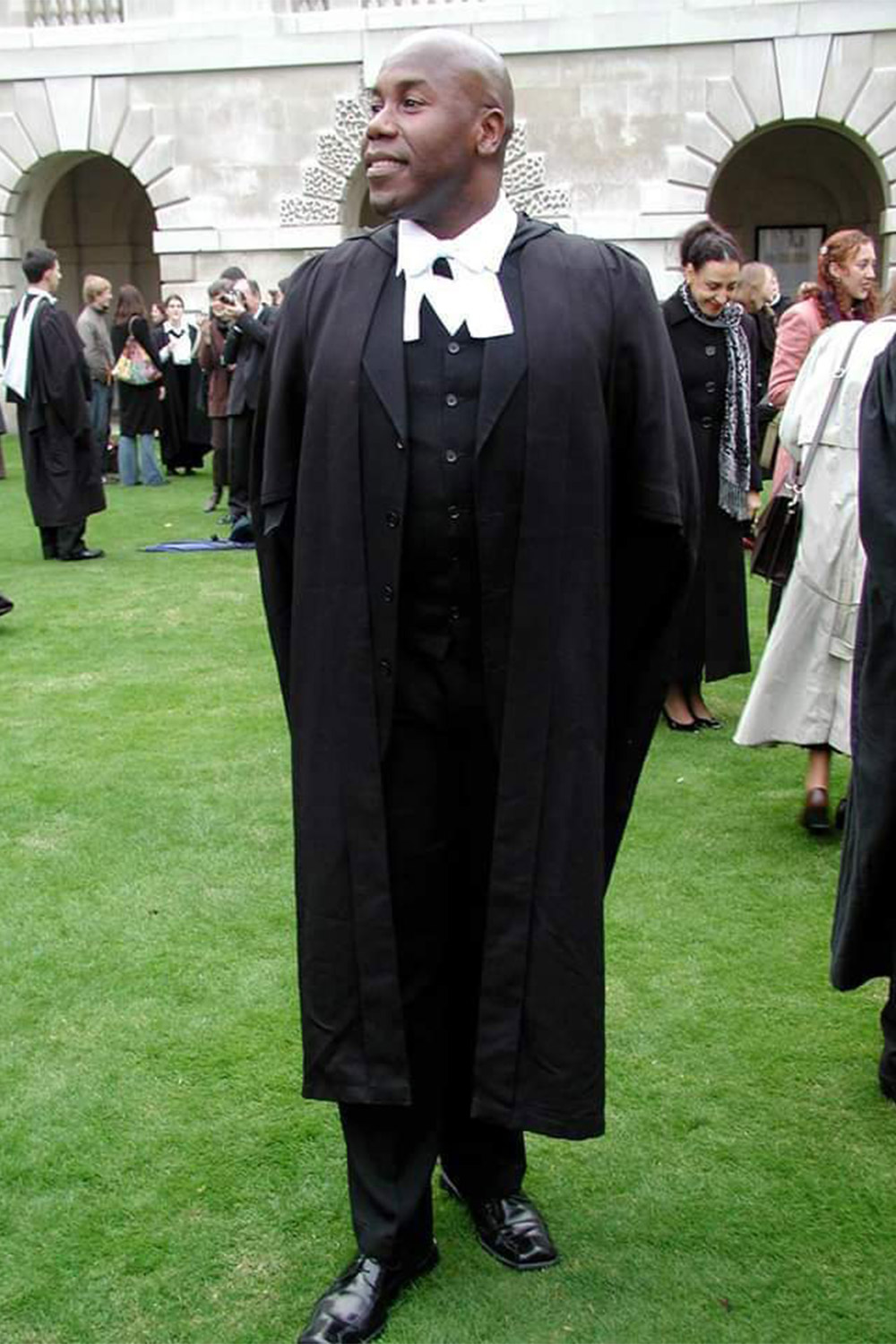
One night nearly three decades ago, following a performance of Evita in which he had sung several ensemble roles, Calvin Orlando Smith stepped out on stage at the Shubert Theatre in New Haven, Connecticut. It was, he had heard, 50 years to the night since Oklahoma! had opened on that very same stage on its way to revolutionizing American theater.
The evening’s performance of Evita had been packed, but the crowd was gone. Smith, who now lives in Eugene, stood alone on that Connecticut stage at midnight with nothing but the ghost light for company. In his deep baritone he began to sing to the empty auditorium, “There’s a bright golden haze on the meadow…”
And as he continued to sing “Oh, What a Beautiful Morning” alone in the dark, Smith had something like a vision. “The theater came to life,” he says. “It shimmered, and as I hit the crescendo I realized that God had given me the greatest moment I would ever have.”
That theatrical approach to life — OK, let’s go ahead and call it flamboyant — is Calvin Smith through and through. A big, friendly man who talks in staccato bursts of exclamation points, Smith has appeared on stages or TV screens with the likes of Isaac Hayes, Ben Vereen, Florence Henderson, Cathy Rigby, J. K. Simmons, Patrice Munsel, R.E.M., Jane Pauley, Bryant Gumbel and The New Kids On The Block. He’s performed in Broadway musicals. He has degrees from Oxford and Cambridge universities. He’s met the future king of England.
I first met Smith one evening when he checked out my groceries at the Albertsons market on 30th Avenue in Eugene. While scanning my bag of cat food, this big, friendly, smiling African American man, his face highlighted by white Elton John-style eyeglasses, asked me my cat’s name and then handed me a postcard announcing an upcoming show by the Eugene Concert Choir. I took one and asked, “Do you sing in the choir?”
He looked at me with a patient smile. “I’m the soloist,” he said.
Smith was born in Washington, Georgia — a tiny town where the Confederacy voted to dissolve itself at the end of the Civil War — and grew up in nearby Athens, home to a branch of the University of Georgia as well as such bands as Widespread Panic, The B-52s and R.E.M. He declines politely to specify his age, but notes his parents have been married 62 years. “You can mention that I integrated the public schools in Georgia in 1969,” he says. “People can figure it out.”
He has an identical twin brother who’s an evangelical preacher in Tucson, Arizona.
Smith’s parents are devout Baptists, as is he. While he enjoyed his share of gospel music growing up in the South, it wasn’t church music that set him on fire as a singer.
“What happened to me as a child was, one evening I heard Jim Nabors sing ‘The Battle Hymn of the Republic’ on The Gomer Pyle Show. I stood up in my living room, and I was like, ‘That’s it!’”
He was in the seventh grade. The next day at school he walked out to the middle of the playground during recess and began to sing.
“In my biggest untrained baritone, I sang ‘Mine eyes have seen the glory of the coming of the Lord,’” he says. “Of course the kids laughed at me. They kind of giggled. But I continued to sing the next day and the next day. I was just singing to the trees.”
A teacher pulled him aside and told him his voice made the leaves on those trees rustle.
Meanwhile, things were happening behind the scenes. “While Calvin was out in the middle of the playground singing, ‘Battle Hymn of the Republic,’” Smith says, talking in the third person of his childhood self, “the teachers got together and said, ‘We’ve got to help this young man.’”
Years later, he says, when he opened as the pirate Cecco in Peter Pan with Cathy Rigby on Broadway, some of those same teachers were in the audience.
Talking with Smith is like trying to grab hold of a bullet train of fascinating, interwoven stories.
There’s the time he performed in Peter Pan with J.K. Simmons (think Oscar for Whiplash, think Dr. Skoda in Law & Order, think J. Jonah Jameson in Spider-Man) playing Captain Hook. “I actually introduced him to his wife, a woman named Michelle Schumacher, who played Tiger Lily, when she whispered to me that she found him attractive.”
After studying at the University of Georgia, Smith finished his undergraduate work at Oxford University in England in 2000. From there he got a master of philosophy degree in art history in 2004 at Cambridge University; his thesis was on pre-Raphaelite landscape painting, based on work in the art collection of Andrew Lloyd Webber.
“I was the first African American ever accepted into Cambridge’s Department of History of Art and to receive a degree,” he says. “So my mother, she said, ‘Well, Calvin, that’s not a field that we go into.’ I said, ‘Mother, it’s still a big deal!’”
While at Cambridge, Smith met Prince Charles — he has the photo to prove it — one night at a university dinner.
“I’m one of the few people on the face of the Earth that has actually touched the man who will be king of England!” he says. “You’re not supposed to touch him. But me and my Southern-ness — as he sat there to take a picture with me, I placed my hand on the small of his back. His assistant quickly grabbed it and pushed it away. But the fact is, I actually touched him before my hand was removed.”
Smith pauses for a bit of reflection.
“So what I say in life is, if there’s something for you to grab, reach out and grab it. Opportunity is not a lengthy visitor!”
Ten years ago Smith was living in Boston, managing a champagne store and thinking he needed a new place to live, one with much less snow. A friend from his Oxford days invited him to come visit Eugene. “And I came, and we did everything from Heceta Head Lighthouse to the sea lion cave to salmon dinner in Florence and dinner at King Estate.” He went home, packed his bags and moved.
Smith loves working at Albertsons. “I like customer service,” he says. “I’ve worked in many shops. Sometimes I feel like Auntie Mame in that scene where she’s selling roller skates, back and forth. Do you know the film?”
One day in 2017 when he was at work scanning groceries, the producer and director of an upcoming new production in Maui of The Hunchback of Notre Dame were shopping in the store. Smith keyed his microphone, the one often used for more-mundane announcements like “Cleanup on aisle three.”
“It was on Father’s Day. I announced, to all the fathers, ‘Happy Father’s Day. And this is for you!’”
Smith turned off the mic and began to sing “Almost Like Being in Love” from Brigadoon.
“I let my voice fill the building,” he says.
As a result he got the part of Phoebus de Martin in the show. Later in a radio interview, the director said, “Anyone who had the chutzpah, just singing in a store with customers listening, in his biggest and best baritone, deserves the role.”
It was about that time that Smith’s rich singing voice and larger-than-life personality came to the attention of Diane Retallack, director of the Eugene Concert Choir. A friend said she had to go hear him sing with the Eugene Gleemen.
“I wasn’t expecting all that much, to tell you the truth,” Retallack says. “And oh, my God. I was totally blown away.”
She invited him to sing with her choir, and he performed “Ol’ Man River” from Showboat one evening. He started by talking to the audience about Showboat and what it meant to him, an African American growing up in the South. Then he began to sing, and was still singing when the crowd erupted in a standing ovation.
“That took the roof off the place,” Retallack says.
Asked about race, Smith tells a story from his school days in Athens.
“I actually had the first interracial kiss there, where me and Jenny Bristow, we’re still friends on Facebook, and I hung under the monkey bars and the entire school watched as we kissed. And this may have been before William Shatner and Nichelle Nichols on Star Trek,” referring to the famous interracial television kiss between Captain Kirk and Uhura in 1968.
“Friends later said, ‘By God, you could have been lynched!’ I wouldn’t have. No one’s gonna lynch me. I’m too powerful.”
Calvin Orlando Smith’s performance of The Music of The Rat Pack scheduled for March 28 at The Jazz Station has been postponed to Sept. 12.


